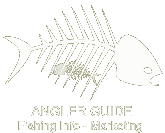 |  |
|
Navigation - Business - Great Lakes - Great Plains - Northeast - Northwest - Rocky Mountains - Southeast - Southwest - Technology - Trophy Catches
|
During a 2008 vacation on the Niangua River, a man noticed snails that were much larger than any of Missouri's native snails. They were the size of chicken eggs. He brought some to the Missouri Department of Conservation's Camdenton office. "I was glad to get the report," said Fisheries Management Biologist Craig Fuller. "They were Chinese mystery snails, a species on Missouri's list of prohibited species. Besides being illegal to possess, they have the potential to multiply out of control and upset the ecological balance in Missouri waters." Since being discovered at a private boat ramp at Mountain Creek Campground, the snails have been found a short distance downstream in the Niangua River, at the Conservation Department's Prosperine Access. Considering how many high flows have occurred on the Niangua River in the past year, Fuller says it seems likely the snails already have spread to other locations as well. In spite of their name, there is little mystery about how Chinese mystery snails and other invasive species have spread across North America. People brought them here, some accidentally and some intentionally. Chinese mystery snails arrived at Asian food markets and in the pet trade to be stocked in aquariums. The zebra mussel, which turned up at several Missouri lakes in 2006, hitched a ride from Eurasia to the Great Lakes in the ballast tanks of oceangoing vessels. Since then it has traveled to distant lakes and streams on trailered boats. The rusty crayfish, native to the Ohio River Basin, has been spread through the live-bait trade. The gypsy moth, which has devastated forests from the East Coast to the Midwest, was brought to the United States in an attempt to hybridize silk worms. Now, their main method of colonizing new areas is attaching eggs to travel trailers and other outdoor equipment. Dozens of other invasive species in North America have similar stories. Some, like the common carp, are so familiar we hardly recognize them as transplants. But each one alters the balance of plant and animal life by displacing native species. Invasive Species Coordinator Tim Banek said the Niangua River mystery snail report was the sixth confirmed infestation in Missouri. He said he is not aware of any effective way to eradicate the snails, though removing and destroying them whenever possible is worthwhile. More important, said Banek, is avoiding spreading Chinese mystery snails or other potentially harmful plants and animals. The simplest precaution, and one of the most effective, is never dumping bait. "When you buy minnows, worms, crayfish or other live bait, you never know for sure where it came from or whether it might contain adults or larvae of invasive species," said Banek. "Instead of dumping bait on the ground or in the water, put it in a trash bag and send it to the landfill. That is a pretty good guarantee that non-native species won't escape. Furthermore, the Wildlife Code prohibits the release of unused bait to waters where it did not originate."
Comments
«Back | News Home
| |||||||||||||||||||||||||||||||||||